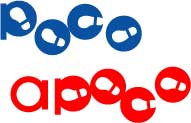Father’s will

Long long ago, there lived a landowner in a village with his wife and a son.
The man had his own house, fields and mountains, which he’d taken over from his father.
His wife gave birth to their second son.
But after the birth, she was doing badly and soon died.
The man felt so sad, and he was deeply concerned about the newborn baby.
If he had died, the older son would succeed to all his property because he had the right of primogeniture.
He wanted to leave some to his baby son.
If he’d had more fields and mountains, his little son would be able to get his property as equally as the older son would, he thought.
He was rich indeed nevertheless he never idled.
He worked hard from morning till night every day.
Years passed.
By the time the second son became 18, the man owned more property.
Now he had two houses, four fields, five horses and six mountains.
He thought he had enough property to leave to his two sons.
But the fact was that he was getting older year after year, and his energy had flagged considerably.
He drew up a will in case he would go to another world by any chance.
In the will he wanted to leave all he had to his two sons equally.
Actually he wrote down his will like this:
**************
Dear sons,
I am getting old.
I will die some day near future.
I hope you two will help and get along well with each other forever.
As you know I’ve been treating you equally with love.
You both should divide my property quite equally.
Never fight over the inheritance.”
Father
**************
When he finished writing the will, he felt relieved.
A few days later, while he rode on horseback around his field, he fell from it and hit his back badly.
Since then he had been in bed.
His sons were worried about the bedridden father, and took good care of him.
They thought their father would recover, but soon he passed away.
At that time the two didn’t notice that their father left his will.
So the older son believed he could succeed to all of his father’s property.
But one day when he cleaned his late father’s bedroom, he found a letter.
He could easily identify that it was his father’s handwriting, the will.
He respected his father so much that he decided to follow the will.
He showed it to his brother, and said,
“I want to follow our father’s will.
You don’t object to succeed half of our father’s property, do you?”
Of course there was no objection at all.
They tried to divide the fortune: two houses, four fields, five horses, and six mountains quite equally.
“So I will get this house, two fields, three horses and three mountains,”
the older brother declared his share.
“Wait, Brother. You are going to get three horses?
That means only two are mine.
The will says we should have his property equally.
We’d better sell one of the horses and divide the money into two,”
the younger brother persuaded the other.
But the elder brother didn’t agree,
“I don’t want to sell or kill any of them.
We have to find a good solution.”
They thought and thought and discussed it all night, and the next day, and the following night.
They felt they came to a deadlock.
At last they decided to get some advice from the doctor, who lived in the neighboring town, because people believed he was the wisest man around there.
And it was the doctor who was attended their father’s deathbed,
They said to him,
“Doctor, we have a problem.
After our father’s death, we found his will.
It says we both inherit his fortune equally.
But we can’t divide five horses into two equally.
What should we do?”
The doctor seemed to think deeply for a while, and then said to them,
“Well, it surely is a difficult problem to solve.
But I finally hit on a good idea.
Did you say you have five horses?
Luckily I have a horse of my own to go to see my patients.
Five and one makes six, right?
What’s six into three?”
“Two,” the two answered unanimously.
“Right.
Each of us can get two horses equally.
It’s a good solution, isn’t it?”
The two brothers were glad to get the reasonable solution from him.
They thought, as people were saying, the doctor was the wisest man around there.
They never doubted they were eventually going to pay him for the additional doctor’s fee―a horse.
The end




